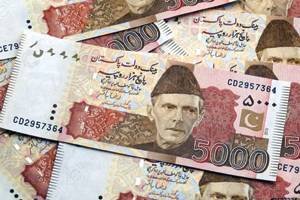KARACHI: The All Pakistan Textile Mills Association (APTMA) has blamed Independent Power Producers (IPPs) for the high electricity bills in the country. They say that the large payments made to IPPs are damaging Pakistan’s economy.
At a press conference on Thursday in Karachi, Zahid Mazhar, Chairman of APTMA Southern Zone, criticized the Federal Budget FY25 for being bad for exports and causing problems for the textile industry. He noted that rising business costs have led to the closure of about 30% of textile businesses because they can’t compete internationally.
Mazhar argued that the federal government needs to help the export sector by creating policies that reduce production costs. The textile industry, which is crucial for Pakistan’s economy and makes up 55% of export earnings, has been ignored in the federal budget.
Despite high energy costs, textile industries in Sindh and Balochistan are also struggling with inconsistent gas and electricity supply. Mazhar said that the high payments to IPPs, many of which are operating below capacity, are making energy costs unsustainable and causing more factory closures.
He called for an immediate review or cancellation of contracts with unnecessary IPPs and demanded a forensic audit to investigate their payments. He noted that the cost of capacity payments has skyrocketed from Rs. 200 billion in 2015 to Rs. 2 trillion in 2024.
Mazhar also pointed out that there are about 100 IPPs in Pakistan, with 80% owned by Pakistanis and 20% by foreign companies. He urged the government to buy electricity from the cheapest sources and eliminate capacity charges to help local exporters.
To boost economic growth, Mazhar said the government should focus on increasing exports instead of seeking IMF loans. The target is to raise exports to $60 billion in the next three years, with $33 billion coming from textiles. He emphasized that this can only happen if export-friendly policies are put in place and business costs are reduced.
Additionally, Mazhar criticized the high interest rates, which are making it more expensive to do business. He suggested aligning interest rates with regional levels to support export industries. He also noted that the government’s budget changes, including removing tax exemptions and increasing income tax rates, will hurt both businesses and salaried workers.










